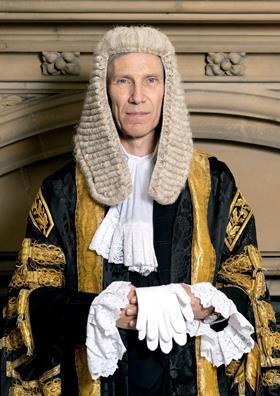Appeal judges have ruled that a summary judgment which found that a firm did not have a duty of care to a third party in dealing with a proposed sale of a property can be set aside, meaning a trial against the solicitors can go ahead.
Michael Kilvert, an ‘experienced solicitor’ with Midlands firm Rees Page, was instructed to act for the Bank of Scotland in respect of various mortgage advances which had been made and misappropriated.
Syed Ul Haq was the registered proprietor of a property in Ealing, London. In 2010, a transfer was made from Ul Haq, who died in 2017, to Bijan Attarian which was not ‘completed as intended’ with 'the bulk of the money stolen' by a third party.
Ul Haq claimed his signature was forged and Attarian was granted a charge by way over the property in favour of the bank, who later sold the property to others who were then registered as proprietors. Ul Haq sued various parties for negligence in connection with fradulent transfers. On his death, his estate continued the legal fights.
Rees Page applied for summary judgment on the grounds that the estate had no real prospect of succeeding on the claim. Summary judgment was granted, and later the estate appealed.
The initial appeal was heard by Mr Justice Edwin Johnson KC who concluded that ‘it was possible to say, in advance of a trial, that the estate had no real prospect of establishing its factual case as pleaded’ and added ‘it was inappropriate to grant summary judgment where there were factual disputes.’ That appeal was dismissed.

Following a challenge in the Court of Appeal, Lord Justice Nugee found that there was an ‘arguable’ point that Kilvert, in filling in an AP1 form and giving confirmations 'the solicitor for the applicant is not acting for the applicant alone but stepping outside that role and acting for all parties…and hence owes a duty to all such parties to act with reasonable care in filling in the form accurately'.
He said: ‘In the present case it seems to me that the relevant allegations are indeed fanciful and that the estate can be seen now to have no real prospect of establishing them. Strictly speaking there was not even any evidence before the court in support of them, there being no witness statement from Mr Ul Haq or anyone else on behalf of the estate.
‘Mr [Edward] Brown [for the estate] said that these allegations had been pleaded by counsel then instructed and were supported by a statement of truth signed by the solicitors then acting, and that there must have been some basis for making them. I am willing to assume that they were based on Mr Ul Haq’s instructions before he died, although this does not by itself get over the problem that, as Mr Brown accepted, he currently has no evidence to prove them, and there would seem to me to be no realistic possibility of him obtaining such evidence for trial.
‘But even on the assumption that this is what Mr Ul Haq told his solicitors and counsel, the more fundamental difficulty is that these allegations are completely at odds with the contemporaneous documents from Mr Kilvert. The documents he has disclosed tell a coherent and comprehensible story.’
The Ashraf v Lester Dominic Solicitors & Ors summary judgment found that though it was ‘well established that solicitors owe their duties to their clients alone, and do not ordinarily owe any duties of care to those on the other side of the transactions in which they are acting’ there are ‘exceptional cases where solicitors have been held to owe a duty of care to someone who is not their client’.
He added that a solicitor does not owe ‘any obligation to perform his services with competence for the simple reason that he has not agreed to provide any service to them at all.’
Exceptions include if the purpose of the solicitor’s retainer by his client is to confer a benefit on a particular third party and if the ‘solicitor for one party makes representations to the other party on which the other party relies.’
The appeal was granted and the summary judgment set aside. The estate’s claim can now go forward to trial on a limited basis.
Nugee said: ‘This will no doubt require an amendment to the estate’s pleaded case; I should make it clear that we have heard no argument, and I express no views, on whether such an amendment should be permitted, which will be a matter for whoever hears any application to amend.
‘I only wish to add that it is no criticism of either of the judges below that they reached a different conclusion to that I have reached given that the focus of the argument appears to have been rather different in this court.’
This article is now closed for comment.





























8 Readers' comments